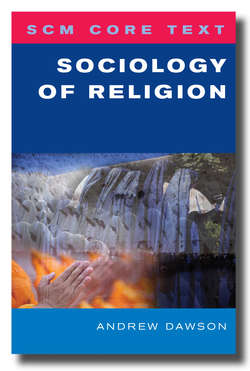Читать книгу SCM Core Text Sociology of Religion - Andrew Dawson - Страница 29
На сайте Литреса книга снята с продажи.
Substantive definitions
ОглавлениеWriting in a period of progressive global exploration and increasing awareness of socio-cultural diversity, Edward Tylor (1832–1917) offered one of the earliest and, for a time, most influential academic definitions of religion. Understood as a ‘minimum definition of Religion’, Tylor held it to comprise ‘the belief in Spiritual Beings’ (1871: I, p. 424). Regarded by Tylor as an essential (necessary) attribute of religion, ‘belief in Spiritual Beings’ served as a theoretical filter eliminating from religious consideration every form of conceptual and practical disposition, which did not embody some kind of preoccupation with non-natural agencies. To be defined as religious, a collective ritual practice such as harvest thanksgiving or individual belief in life after death must, however tacitly, acknowledge the existence of supernatural beings. At face value, and in view of its alluring simplicity, Tylor’s definition is an attractive one.
Appearances, though, can be deceptive. For Tylor’s definition excludes from consideration as religious the many historical and contemporary practices and beliefs (such as Theravada Buddhism and modern nature religion), which engage supernatural forces and dynamics lacking subjective attributes of ‘being’ such as self-awareness and self-determination (Southwold, 1978, pp. 362–79; Shaw and Francis, 2008). Each in its own way, Theravada Buddhism and modern nature religion embodies a religious mode of belief and practice which is not orientated to or by the kinds of ‘Spiritual Beings’ central to Tylor’s definition. In spite of its minimal and purportedly inclusive intent, Tylor’s definition nevertheless excludes from consideration certain forms of belief and practice which the overwhelming majority of scholars today include within their definitions of religion. Despite his inclusive aspirations, Tylor’s attempt at a universally applicable definition fails by virtue of its unacknowledged Judeo-Christian perspective and limited historical gaze.
Tylor’s definition of religion is typically ‘substantive’ in the way that it goes about saying what religion is. Typically, substantive definitions of religion seek to capture the essential preoccupations or core concerns of the religious worldview. In so doing, substantive definitions of religion tend to downplay, if not entirely overlook, explanations of what religion actually does relative to the socio-cultural context through which it is expressed. As a result, substantive definitions of religion tend to be sociologically thin in that they fail adequately to capture the social influence which religious practices and beliefs exert by means of their concrete expression through individual behaviour and corporate action. It is in this respect that ‘functional’ definitions of religion make an important contribution to sociological understanding.
